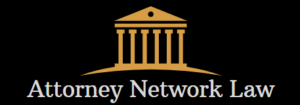Thousands of skilled foreign workers immigrate to the United States every year on EB-1A petitions. This visa category allows individuals to self-petition, and no employer sponsorship is required. It is based on extraordinary ability in the fields of science, art, or education and is currently backlogged for Indians. However, it is important to understand that the visa is not guaranteed. For those seeking to improve their chances, exploring the eb1a success rate at breakthrough usa can provide valuable insights into how to enhance your application and navigate the complexities of the process.
EB1A Priority Dates
The EB1A green card is the golden ticket for uber-talented foreign nationals, offering a pathway to citizenship and a brighter future for their families. The EB1A visa category requires extensive documentation of nationally or internationally renowned achievement, including benchmark-setting patents and glowing evaluations from peers and leaders in the field. As a result, the green card process can take more time than other categories due to high demand and limited visas.
Understanding processing times and regularly checking the Visa Bulletin is essential for managing expectations. This section casts a net over the intricacies of these timelines, arms future petitioners with strategies to weather RFEs, and charts a course for success if delays appear on the horizon. In addition, it explores the nuances of priority dates and the reasons behind per-country cut-off dates, which regulate when immigrant visas are available.
EB1A Eligibility
The EB1A visa is a first preference employment-based green card category for aliens of extraordinary ability in the sciences, arts, education, business, or athletics. This category waives the Labor Certification requirement and can be self-sponsored.
To qualify for the EB1A, an alien must have sustained national or international acclaim. This means that the person has been recognized in the field in which they work as one of a small percentage of people who have reached the top of their profession.
For example, a scientist may submit copies of articles in which their work has been cited by other scientists. An artist, on the other hand, must provide evidence that their work has been widely publicized and well received. This can be shown through box office receipts for films or plays, or by submitting sales records of recordings, cassettes, compact disks, and video documentaries.
If an alien does not have a major one-time achievement, they must meet at least three of the ten evidentiary criteria. A list of these criteria is provided below.
EB1A Process
EB1A applications require meticulous preparation and attention to detail. They rely on a wide array of documents, from patents to peer reviews. A skilled immigration attorney can help shape voluminous evidence into a cohesive story that showcases the foreign national’s unparalleled contributions to their field. This translates into an exemplary application that stands head and shoulders above its peers.
To qualify for an EB1A visa, you must prove that you have extraordinary ability in one of the following fields: sciences, education, business, motion picture industry, or athletics. You can meet this requirement through numerous means, including major awards, high salaries compared to those in your field, and leadership roles in distinguished organizations.
Unlike some employment-based categories, you can self-petition for an EB1A visa. This allows you to avoid having a sponsoring employer, which can save you time and hassle. Once your visa is approved, you can enter the US as a permanent resident. Your interview at the National Visa Center is the grand finale of the EB1A process. It is your moment to show that you are among the elite in your field.
EB1A Visa
There are several requirements for EB1A visa applicants, including showing that their entry to the United States will substantially benefit the nation. The most common way to do this is by submitting evidence of significant impact in the field. This can include major awards, published work, and media recognition. The Sherrod Sports Visas team can guide you in putting together a comprehensive collection of evidence to increase your chances of approval.
The EB1A green card category is one of the most difficult to qualify for because it requires sustained national or international acclaim in science, arts, education, business, or athletics. In comparison, the EB-2 NIW green card category has recorded higher approval rates for those with advanced degrees and a job offer in hand. The EB-2 NIW category also allows for self-petitioning, meaning that no employment certification is required. This gives candidates greater flexibility in their choice of employment. This can be particularly beneficial to athletes who do not wish to be sponsored by their employers.
